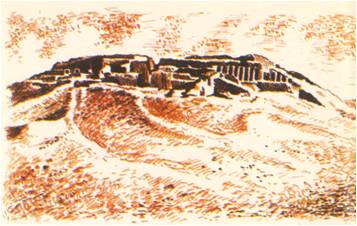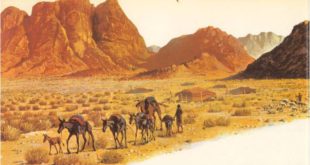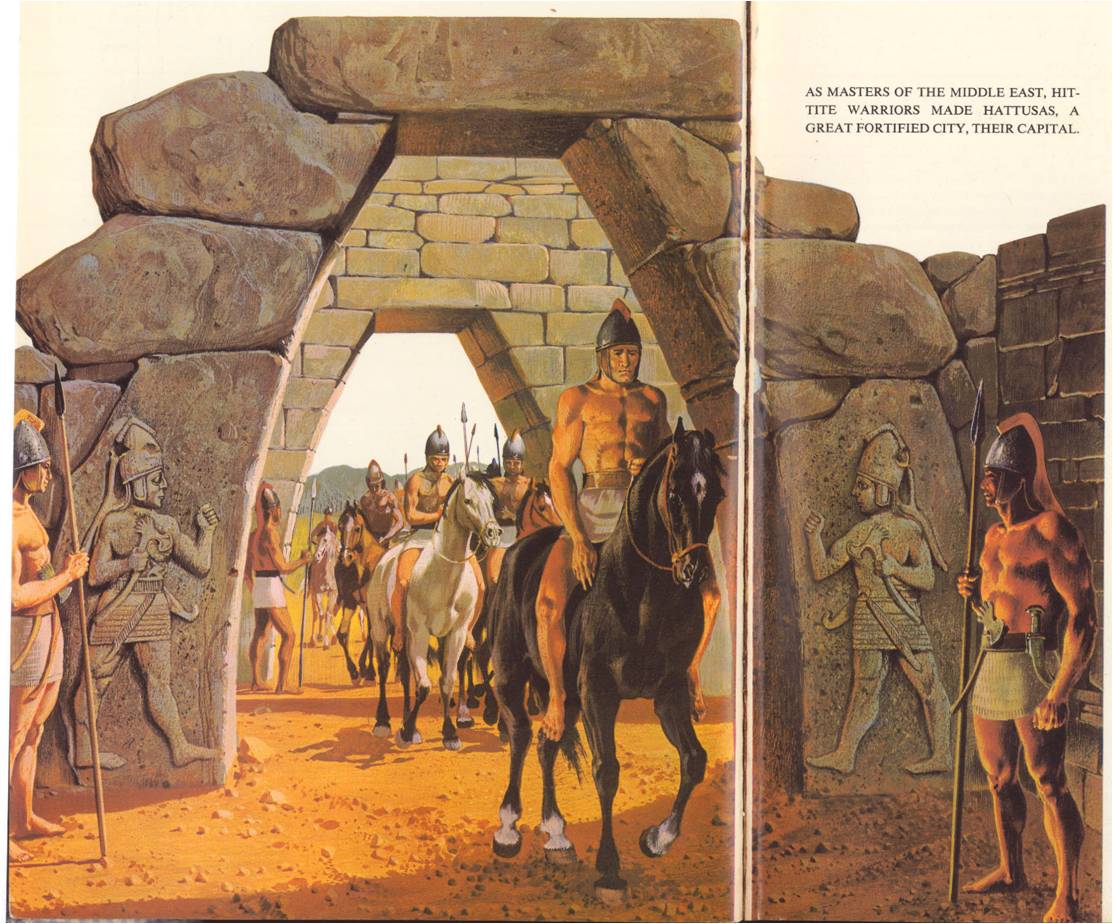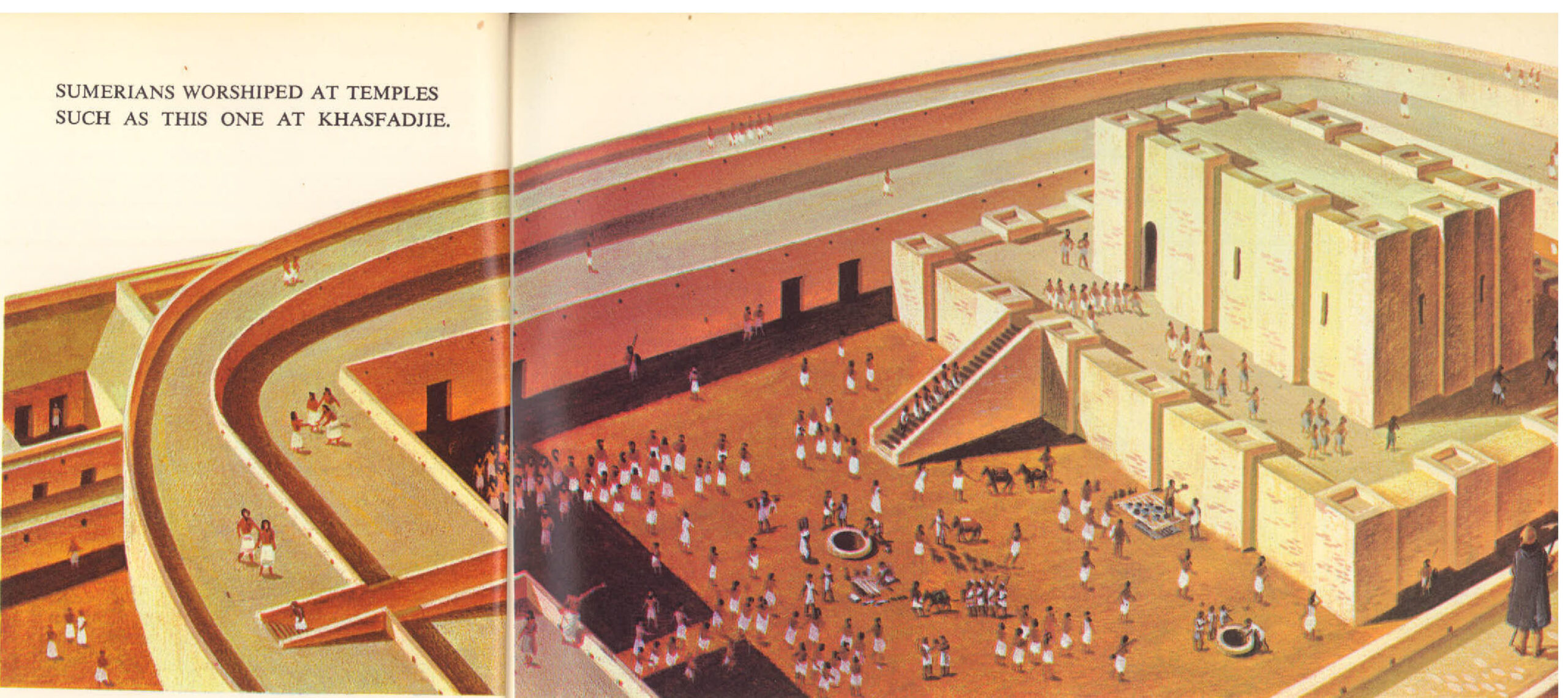THROUGHOUT THE eleventh century, the divided Arab Empire became weaker in all its parts. Meanwhile, the Christian lands to the north became stronger. Adventures from northern France snatched Sicily and Southern Italy from the Arabs. The pope called on the rulers of Europe for a united Christian attack on the Moslems. By the end of the century, European knights in chain-mail armour were streaming into Syria by land and sea, determined to recapture the holy places of their religion. This campaign was the first of many. The Crusades dragged on for two centuries, with long periods of peace coming between …
Read More »Tag Archives: Mesopotamia
Civilization comes to India 3500 B.C to 200 B.C.
For thousands of years during the Stone Age, only scattered groups of people had lived in India. With only the simplest tools of bone, wood and stone, they hunted and gathered food. Cut off from other peoples by the mountain and the sea, the first Indians made few advances in their primitive way of life. Then, sometime between 3500 B. C., new settlers began to appear along the Indus River Valley in northwestern India, a region that would be called West Pakistan thousands of years later. It seems almost certain that these newcomers were from the mountains and plateaus to …
Read More »The Rise of the Assyrians 1600 B. C. – 539 B. C.
During the century after the Hittites had raided Babylon and rose to power in Turkey and Syria, Mesopotamia was a divided unproductive land. In the south, Babylonia fell under the rule of foreigners, first the Kassites from the northeast and then the Elamites from the southeast. Neither of these people seemed able to make any advances in civilization. Northern Mesopotamia came under the Mitanni kingdom, which at least introduced trained horses and chariots to the Near East. By the time the native Babylonians regained control and the Mitanni kingdom fell, another people was disturbing the land – the Assyrians. The …
Read More »The People of One God 3000 B. C. – 30 B. C.
On the plains of Mesopotamia, a young man stood gazing up at the stars that glittered from the dark sky of night. He was Abraham, a native of the Sumerian city of Ur. Abraham was a Hebrew, one of the many tribes of Semites said to have been descended from Shem, the son of Noah who had been saved from a great flood many years before. Like all people of his time, Abraham believed in many gods throughout nature. As he studied the pattern of the great stars for the god’s message, Abraham began to feel he was in the …
Read More »The Gift of the Nile 3300 B.C. – 30 B.C.
It was around 3500 B.C. and as it did every year around the middle of July, the Nile had begun to rise. Carrying tons of soil, the waters poured down from the mountains of Africa, where the rain and melting snow fed the streams that surfed northward into one great river. Wherever it ran free of the rocky canyons, the river overflowed onto the dry fields along its banks. It lapped against the villages on high ground and spread to market towns on the edges of the dessert. Moving northward, the river engulfed the entire Delta region and then emptied …
Read More »Hittite Warriors Build a Kingdom 1750 B. C. – 700 B. C.
Within 150 years of the death of Hammurabi, the cities of Mesopotamia were powerless and other peoples took up the struggle for the Near Eastern world. Among them were the Hittites, who had taken the city of Babylon. The rough Hittite tribesman hardly knew what to do with such a splendid city, let alone with an empire, so they went back to their strongholds in the highland plains of central Turkey. They had been living there for several centuries, ever since they had left their homeland in the steppes of central Asia. When the Hittites first moved into Turkey, they …
Read More »Mesopotamia, Where Civilization Began 4000 B.C. – 1750 B.C.
Mesopotamia is where civilization began. By 4000 B. C., many different groups of people were working out their lives in a variety of ways. In a great arc from the eastern coast of the Mediterranean, across the Turkish plains and through the highlands of Iraq and Iran, groups of peoples had settled and were farming, tending animals, making pottery and building towns, markets and forts. In the deserts, mountains and steppes, nomadic tribesmen lived by herding animals and by hunting and raiding. In Mesopotamia as these populations grew, they began to compete for land, food and supplies. One of the …
Read More »





